Description
This track includes three sessions on vertical services enabled by IoT and AI technologies:
- Smart Agriculture
- Smart Transportation
- Smart eHealth
Across the themes, researchers from around the world will share their views and research focus on solutions that aim to address the pressing challenges we are currently facing. Among them include the changing dynamics of human society (such as aging and labor shortage) and working and living environments (such as digital-nomad workforce and eco-friendly mandates). The panel discussions will cover topics in IoT data exchange, platform, service provisioning, and remote and ubiquitous service access.
Track Chairs
Dr. Chung-Min Chen, Consultant, Lutron Electronics, USA

Chung-Min Chen is with Lutron where he provides consulting in data science and research related to lighting systems manufacturing, user experiences, and marketing. Prior to that he was VP of Data Science at Sidecar Interactive, a startup leveraging machine learning in digital marketing, and Sr. Director of Data Science and Analytics at iconectiv (an Ericsson company) where he helped build Ericsson’s analytics products that enable telecom carriers to better understand and manage mobile user experiences. He had also held research and management positions with Bellcore, Telcordia, and subsequently Applied Communication Sciences. His interests span across database systems, distributed and parallel computing, mobile computing, and machine learning. He has published over 50 papers in leading ACM and IEEE journals and conferences including JACM, TOSN, TKDE, TMC, TON, JSAC, SIGKDD, PODS, SIGMOD. He received a PhD in CS from University of Maryland, College Park and BS in CSIE from National Taiwan University.
Dr. Christopher Brinton, Purdue University, USA

Christopher G. Brinton is an Assistant Professor in the School of Electrical and Computer Engineering at Purdue University. His research interest is at the intersection of networked systems and machine learning, specifically in distributed machine learning, fog/edge network intelligence, and data-driven network optimization. Dr. Brinton was the recipient of the 2022 NSF CAREER Award, 2022 ONR Young Investigator Program (YIP) Award, and 2022 DARPA Young Faculty Award (YFA). He currently serves as an Associate Editor for IEEE Transactions on Wireless Communications, in the ML and AI for wireless area. Prior to joining Purdue, Dr. Brinton was the Associate Director of the EDGE Lab and a Lecturer of Electrical Engineering at Princeton University. Dr. Brinton received the PhD (with honors) and MS Degrees from Princeton in 2016 and 2013, respectively, both in Electrical Engineering.
—————————————————————–
Indf-01-1: Smart Agriculture
Abstract
The world’s population will reach 9.5~10.5 billion by 2050, which will rise the demand of global agricultural production to double. Unfortunately, the limited arable land, decreasing natural resources, and unpredictable weather conditions (e.g., extreme climate) increases the risks to agricultural production. Moreover, some countries (e.g. Taiwan) in recent years, due to the aging of the rural population and the low birthrate, there has been a large shortage of manpower in agriculture, and agricultural productivity has been severely impacted. These events will cause food shortages and food prices rising. With the growing of the Information and Communication Technology (ICT), Artificial Intelligence (AI) models and Internet of Things (IoT) systems have been developed to automatically operate and monitor farms for minimizing the manpower requirements and increasing the quantity and quality of agricultural products.
Smart agriculture is an emerging application that enables smart farming management. Smart agriculture integrates agricultural domain-knowledge with forward-looking information and communication technologies (ICT) to increase the quantity and quality of agricultural products, reduce the burden of farming operations and reduce labor demand. The technologies applied to smart agriculture include Agricultural Robots, Unmanned Aerial Vehicles (UAVs), Wireless and Mobile Communications (e.g., WiFi and 5G/6G), Sensing technologies, Big Data analysis, Cloud/Fog/Edge Computing, IoT platform and Blockchain. Through these technologies, smart agriculture can provide safe, secure, and traceable agricultural products. In this session, a few emerging Smart Agriculture solutions, applications and services will be presented by 4 ~ 5 invited speakers from international company, high-tech startups and/or academic community. This panel will cover the following topics:
- Digital Twins for Smart Agriculture
- Smart production management
- Machine Learning and IoT Platform
- Sensing Technologies for Aquaculture Fishery
We expect that all of conference attendees will be able to understand how to apply AI, IoT and the advanced ICT technologies to build Smart Agriculture services and the value of deploying Smart Agriculture.
Chairs
Dr. Yi-Bing Lin, PhD, National Yang Ming Chiao Tung University (Taiwan)
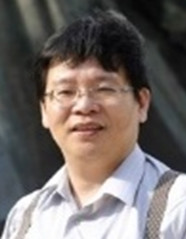
Yi-Bing Lin received his Bachelor’s degree from National Cheng Kung University, Taiwan, in 1983, and his Ph.D. from the University of Washington, USA, in 1990. From 1990 to 1995 he was a Research Scientist with Bellcore (Telcordia). He then joined the National Chiao Tung University (NCTU) in Taiwan, where he remains. In 2011, Lin became the Vice President of NCTU. Since 2014, Lin has been appointed as the Deputy Minister of Ministry of Science and Technology, Taiwan. After 2016, he become a lifetime Chair Professor of NCTU. Lin is also an Adjunct Research Fellow, Institute of Information Science, Academia Sinica, Research Center for Information Technology Innovation, Academia Sinica, and a member of board of directors, Chunghwa Telecom. He serves on the editorial boards of IEEE Trans. on Vehicular Technology. He is General or Program Chair for prestigious conferences including ACM MobiCom 2002. He is Guest Editor for several journals including IEEE Transactions on Computers. Lin is the author of the books Wireless and Mobile Network Architecture (Wiley, 2001), Wireless and Mobile All-IP Networks (John Wiley,2005), and Charging for Mobile All-IP Telecommunications (Wiley, 2008). Lin received numerous research awards including 2005 NSC Distinguished Researcher, 2006 Academic Award of Ministry of Education and 2008 Award for Outstanding contributions in Science and Technology, Executive Yuen, 2011 National Chair Award, and TWAS Prize in Engineering Sciences, 2011 (The World Academy of Sciences). He is in the advisory boards or the review boards of various government organizations including Ministry of Economic Affairs, Ministry of Education, and Ministry of Transportation and Communications. Lin is AAAS Fellow, ACM Fellow, IEEE Fellow, and IET Fellow.
Dr. Whai-En Chen, PhD, Asia University (Taiwan)
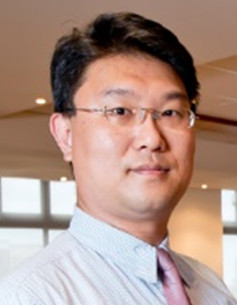
Whai-En Chen received his BS degree in EE from Tam Kang University in 1997 and received a PhD in Computer Science from National Tsing Hua University in 2002. He began serving as a Research Assistant Professor in National Chiao Tung University from 2002 to 2007. Since August 2007, Dr. Chen joined Institute of Computer Science and Information Engineering (CSIE) as an Assistant Professor at National Ilan University (NIU) and served as the division head at network division of Computer Center. During 2008 to 2013, he served as the director of Institute of CSIE. Since 2010, he has been promoted as an Associate Professor in Department of CSIE. During 2014 to 2016, he served as the director of Library and Information Center. Dr. Chen is a Professor of Department of CSIE at NIU since 2016. During 2018 to 2021, Dr. Chen served as a chairman of CSIE at NIU. Since August 2021, Dr. Chen joined Asia University as a Distinguished Professor and served as Dean of Office of Information Communication Technology. His research interests include Internet of Things (IoT), Machine Learning, Mobility Management, IPv6, Voice over IP, Multi-access Edge Computing, 5G/6G.
Speakers
1) Prof. Charles C.N. Wang, Department of Bioinformatics Asia University
2) Prof. Wen-Liang Chen, Department of Biological Science and Technology National Yang Ming Chiao Tung University
3) Prof. Nen-Fu Huang, Departmentof Computer Science National Tsing Hua University
—————————————————————–
Indf-01-2: Smart eHealth
Abstract
According to Allied Market Research, the global e-health market was valued at $74,476.4 million in 2019 and is projected to reach $2,30,640.4 million by 2027 at a CAGR of 14.5% from 2020 to 2027. The rise in government initiatives to support eHealth solutions, an increase in chronic diseases, the practice of promoting preventive health care to improve patient well-being, and the growing need to manage regulatory compliance through the use of eHealth solutions drive the growth of the market.
Electronic health records and ePrescription have already increased and would continue to rise in the future. These systems rely on secured interoperable digital systems to allow the exchange of person-centric operations in the future, such information would travel across the border to improve healthcare management and meet urgent requests. To achieve that, a secured and privacy-protected exchange system becomes critical across systems, regions, and countries.
While the use of artificial intelligence (AI) in medical diagnoses has been increased, the effective use of the vital data through various IoT sensors and hybrid Edge and Cloud systems can provide both portable and comprehensive diagnoses to assist doctor’s treatment or vital signal monitoring, especially for chronic diseases.
The eHealth industry aims to make healthcare facilities more accessible to patients regardless of their location and time. In the future, digital health technologies would focus on bringing healthcare services close to patients. For instance, currently, in hospitals, emergency rooms are allotted according to the health of the patient and their urgency of care. With the use of eHealth, patients could provide their symptoms either through an application that can be digitally assessed or instant measures through portable sensors or devices and the patient can be treated with different priorities. On the other hand, instead of traveling a few miles just to see doctors ask a few questions patients can use digital means at home and make benefit from telemedicine technology and interact with doctors and receive ePrescription at home. Due to the pandemic crisis of Covid-19, telemedicine has been widely implemented around the global.
mHealth technology can keep track of users’ vital signs and monitor irregularities. This way, users can get a doctor’s opinion before their diseases progress. This will help improve diagnoses and minimize the death rate due to medical negligence. The Covid-19 pandemic has already proven to be favorable to the adoption of eHealth technology as the majority of the clinics were operating at a low capacity and major surgeries and operations were postponed. During the pandemic, doctors and patients used mHealth applications to stay in touch with doctors and take better care of their health. However, all these technologies are based on interoperability and strong internet connection. Thus, high-quality internet penetration or current wireless 5G deployment would increase to minimize the distance between doctors and patients in the future. This panel will cover the following topics:
- Electronic health records systems (EHR): It compiles patients’ health records into a digital format to make the information available to both patients and doctors whenever and wherever they want.
- Secured data exchanging platform: Portable personal health data should be available upon request but considering different regulations, how to provide a secured data exchanging platform and protect personal privacy should be addressed.
- Telemedicine: This eHealth solution offers patients 24×7 medical care from remote doctors through videos and telephone calls. Telemedicine helps overcome barriers of home care settings and offers a sound opinion of a specialist.
- Remote monitoring: This technology has allowed doctors and other healthcare professionals to monitor their patient’s vital signs remotely. Moreover, it offers closer medical supervision of patients struggling with chronic illnesses. With AI, an intelligent self-awareness system can be established.
- mHealth: Mobile health offers informative health-related recommendations through smartphones and the use of computers or tablets. Such mobile applications help patients keep track of their health and alert hospitals in case of emergency.
We expect that all of the conference attendees will be able to understand the potential issues, challenges, and technologies to implement Smart eHealth.
Chairs
Dr. Hank Huang (TW), National Yang Ming Chiao Tung University (Taiwan)
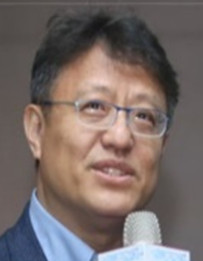
Hank ChingYao Huang received his Bachelor’s degree from National Taiwan University, Taiwan, in 1987, and his Ph.D. from Rutgers University, USA, in 1996. From 1996 to 2002 he was a researcher with Bell Labs (Lucent Technologies). He then joined the National Chiao Tung University (NCTU) in Taiwan. In 2014, Huang became the Vice Dean of NCTU EE college. Huang has been a Chairman of the Chinese Business Incubator Association, Asian Association Business Incubator, and Asia Pacific Accelerator Network Association in 2016, 2018, and 2019 respectively. Huang is the managing director of the Center of Industry Accelerator and Patent Strategic since 2013. Each year the center hosts more than 50 startups and engages in fundraising for startups for 10 to 20 million USD, Huang himself is also a serial entrepreneur and is the co-founder of Gomore (2011) and FiduciaEdge Tech (2020).
Dr. Ahmed Mehaoua (FR), Université de Paris(France)
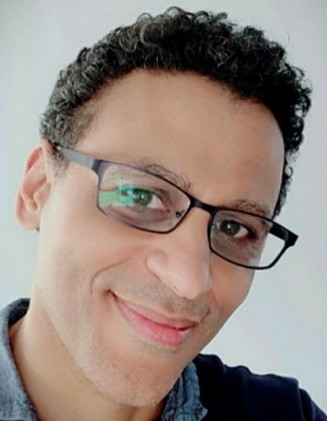
Head of the “Multimedia Networks and Security” research team at the Paris Descartes Computer Science Laboratory ( LIPADE ) Chairman of the Scientific Council of the UFR of Mathematics and Computer Science ( UFR MI) Former member of the CNRS-PRISM laboratory in Versailles
—————————————————————–
Indf-01-3: Smart Transportation
Abstract
With the promise of revolutionizing and the arrival of 5G networks, the way we live, work, and manufacture, it is not surprise that the smart transportation has picked up momentum in both industry and academia. The services introduced by the smart transportation is enabled by the information and communication technology (ICT), which gives a new meaning of the word “smart”. In particular, with the advantage of speed and convenience, the high-speed rail has been playing a significant role in the current and future smart transportation system.
The current decade will see an exponential growth in the number of Internet of Things (IoT) devices, which gather data from environment and forward them to communication networks. To enable the smart transportation, IoT senses the physical world and constructs a ubiquitous connection between the environment and the transportation system via data exchange. The integration of IoT and transportation provides a potential solution to meet the requirements of the reliability and low latency for the smart transportation. In addition, the recent ascent of artificial intelligence (AI) is expected to support ICT architectures and infrastructures. Owing to its data-driven approaches and the ability of learning, artificial intelligence has been envisioned to attain better flexibility and robustness in design of smart transportation and the make the transportation system smarter. In particular, an AI-enabled transportation system provides a promising solution to using the mass data provided by IoT services efficiently.
The Smart Transportation Symposium at IEEE WF-IoT aims at a forum that brings together scientists and researchers to present their cutting-edge innovations in all aspects of the field. To ensure complete coverage of the advances in the field, the track of the smart transportation solicits original contributions in, but not limited to, the following topical areas:
- Ultra-Reliable and Low Latency Communications (URLLC) service in smart transportation
- Age of Information (AoI) for smart transportation enabled by IoT
- Green Communications for Smart Transportation
- Smart sensing for smart transportation
- Integrated sensing and communication for smart transportation
- mmWave communication for smart transportation
- massive MIM for for smart transportation
- Coverage optimization for smart transportation
- Hanover optimization for smart transportation
- IRS-enhanced IoT services for transportation
- IoT survivability and security for the Smart Transportation
- Access networks in the IoT for the Smart Transportation
- AI based enhancements for quality of service (QoS) in transportation
- Federated Learning for securing communication in transportation system
- Reinforcement Learning for communication resource allocation
- AI for IoT and massive connectivity in transportation system
We expect that all of conference attendees will be able to understand the enabling value of smart transportation, and its technology implementation & commercialization for next generation IoT services and applications.
Chairs
Dr. Bo Ai, Beijing Jiaotong University
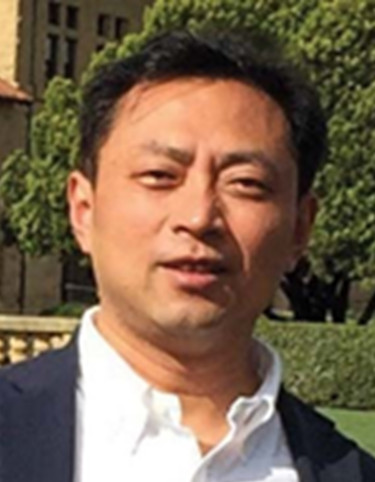
Bo Ai received the M.S. and Ph.D. degrees from Xidian University, Xi’an, China, in 2002 and 2004, respectively. He was with Tsinghua University, Beijing, China, where he was an Excellent Postdoctoral Research Fellow in 2007. He is currently a Professor and an Advisor of Ph.D. candidates with Beijing Jiaotong University, Beijing, where he is also the Deputy Director of the State Key Laboratory of Rail Traffic Control and Safety. He is IEEE Fellow since 2021. He is also with the Engineering College, Armed Police Force, Xi’an. He has authored or coauthored six books and 270 scientific research papers, and holds 26 invention patents in his research areas. His interests include the research and applications of orthogonal frequency-division multiplexing techniques, high-power amplifier linearization techniques, radio propagation and channel modeling, global systems for mobile communications for railway systems, and long-term evolution for railway systems.
Dr. Chao Shen, Beijing Jiaotong University
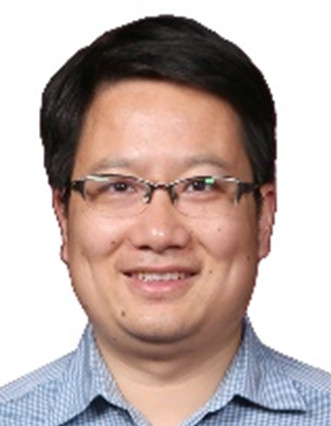
Chao Shen received the B.S. degree in communication engineering and the Ph.D. degree in signal and information processing from Beijing Jiaotong University (BJTU), Beijing, China, in 2003 and 2012, respectively. He held a Post-Doctoral position at BJTU. He was a Visiting Scholar with the University of Maryland at College Park, College Park, MD, USA, from 2014 to 2015, and The Chinese University of Hong Kong, Shenzhen, from 2017 to 2018. Since 2015, he has been an Associate Professor with the State Key Laboratory of Rail Traffic Control and Safety, BJTU. His current research interests include beamforming design, ultrareliable and low-latency communication (URLLC), and integrated sensing and communication (ISAC) for B5G/6G communications.


